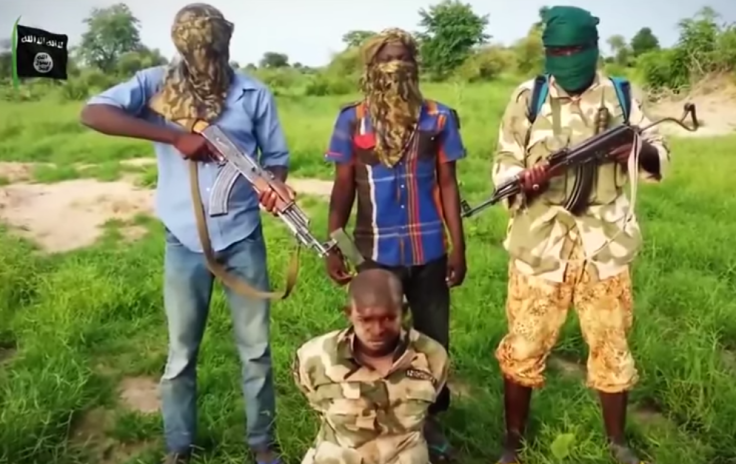Boko Haram not linked to Isis, claims US
There is no evidence of a real link between Nigerian Boko Haram terrorists and the Islamic State (Daesh) terror group, US officials have claimed. Boko Haram renamed itself Islamic State's West African Province (Iswap) after pledging allegiance to IS in March 2015.
The Nigerian group has since released statements restating the allegiance and, in July 2015, it released an Isis-style beheading video that bore all the hallmarks of propaganda videos routinely released by IS.
US officials, however, told Reuters they believe the allegiance had merely been a branding exercise to boost the credibility of Boko Haram, whose insurgency in Nigeria and neighbouring countries is not related to IS' war in Libya and the Middle East.
"If there is no meaningful connection between Isil and Boko Haram – and we haven't found one so far – then there are no grounds for U.S. military involvement in West Africa other than assistance and training," said one US official who spoke on conditions of anonymity. "This is an African fight, and we can assist them, but it's their fight."
This contradicts a previous statement made by another US official, who warned in May 2015 the link between the two groups was a cause for concern and could undermine peace and stability in West Africa.
Although the US has not sent any troops to assist the Nigerian army against Boko Haram, it sent 300 soldiers to Cameroon, which is also routinely targeted by the insurgents.
Boko Haram in Libya
Following the allegiance, intelligence experts have warned that Boko Haram members were travelling to Libya to join IS cells. In February 2016, the Nigeria's State Security Service (DSS) announced it arrested university student Abdussalam Enesi Yunusa on suspicion that he was planning to meet other militants at an IS terrorist training camp in Libya.
The DSS also said several terrorist attacks had been foiled while other cells affiliated with IS were found to operate in Nigeria.
In an interview with IBTimes UK, counter-terrorism expert David Otto claimed the international community was ignoring the dangers of the Boko Haram-IS link. Otto claimed that every day Nigerian terrorists were leaving their country to travel to Libya and eventually Europe.

Regional offensive
Nigeria is heading an ongoing regional offensive against Boko Haram. The task force consists of 8,700 troops from Nigeria, Niger, Chad, Cameroon and Benin. The group has scored some successes, such as the recapture of several territories and the release of thousands of civilians previously held captive.
Although Nigeria's President, Muhammadu Buhari, declared a technical victory over the insurgents in December 2015, Boko Haram has continued to carry out attacks with security experts warning underlying issues such as disenfranchisement, poverty and strong links with IS continue to pose major threats to stability in the region. In the latest attack blamed on the group, 30 Nigerien soldiers and two Nigerian soldiers were killed in Bosso, Niger.
Who are Nigeria's Boko Haram terrorists?
Boko Haram launches attacks in Nigeria and neighbouring countries in a bid to take control of more territory. Three Nigerian states − Adamawa, Borno and Yobe − have been under a state of emergency since May 2013.
Boko Haram has killed more than 20,000 people since 2009 and was deemed the world's deadliest terror group, surpassing Islamic State in November 2015. Nigeria has also become the world's third most terrorised country as a result of the group's violent insurgency.
Nigeria up close: Check out our Flipboard magazine
© Copyright IBTimes 2024. All rights reserved.






